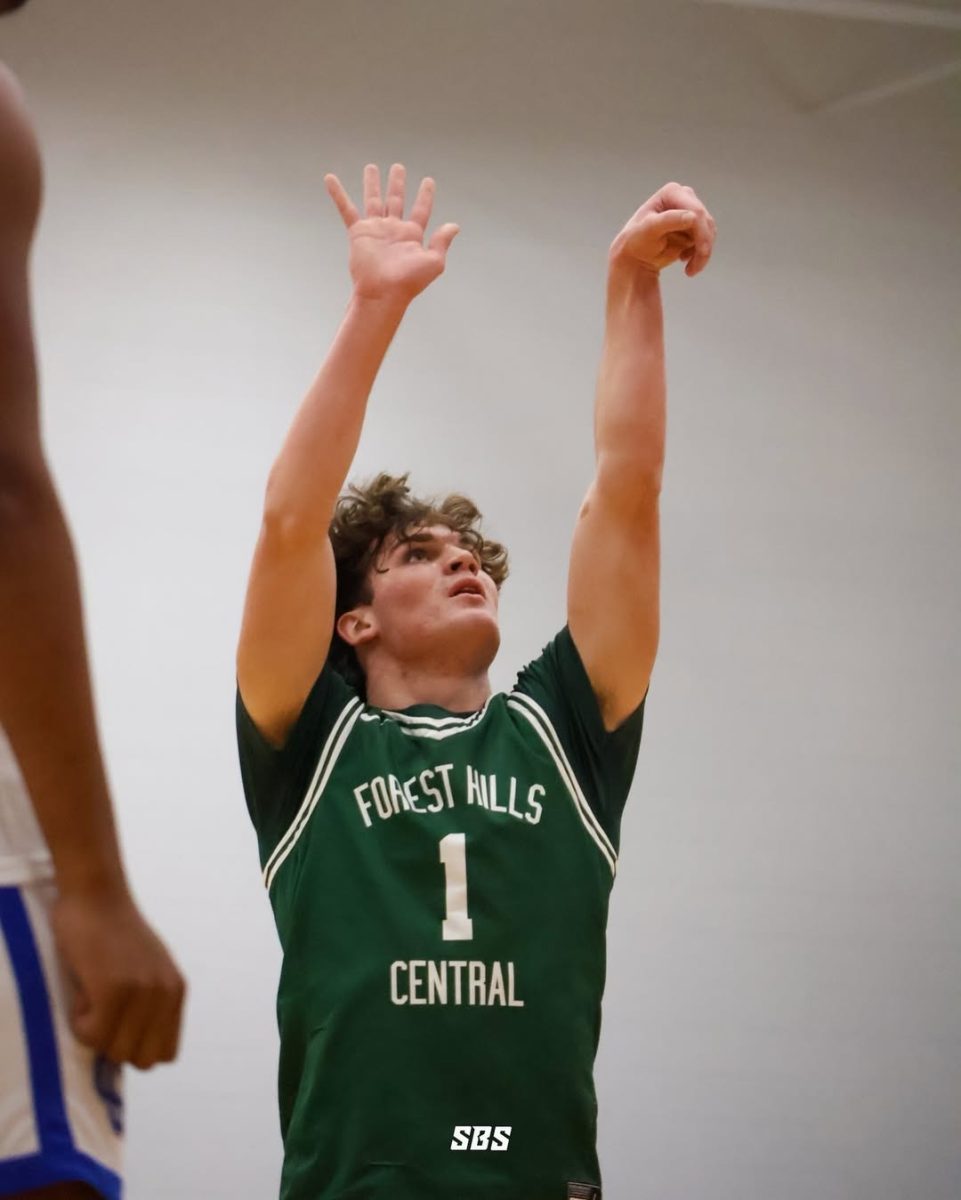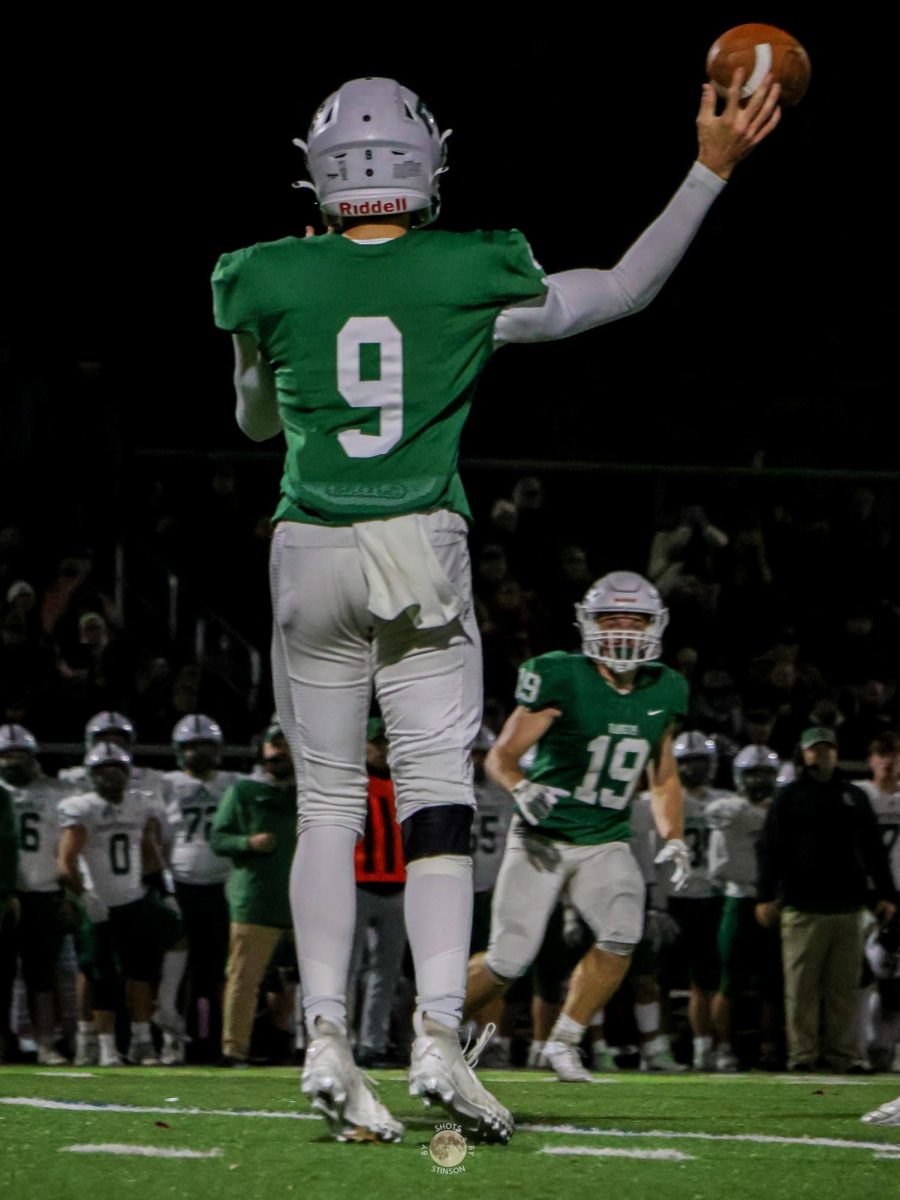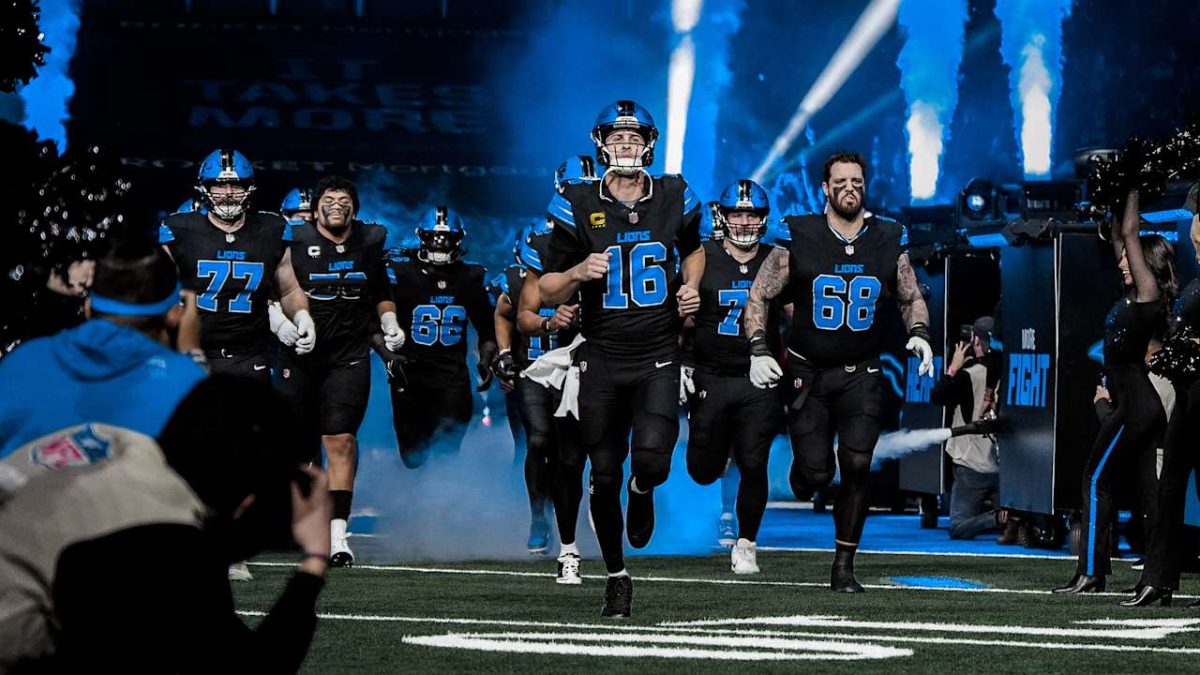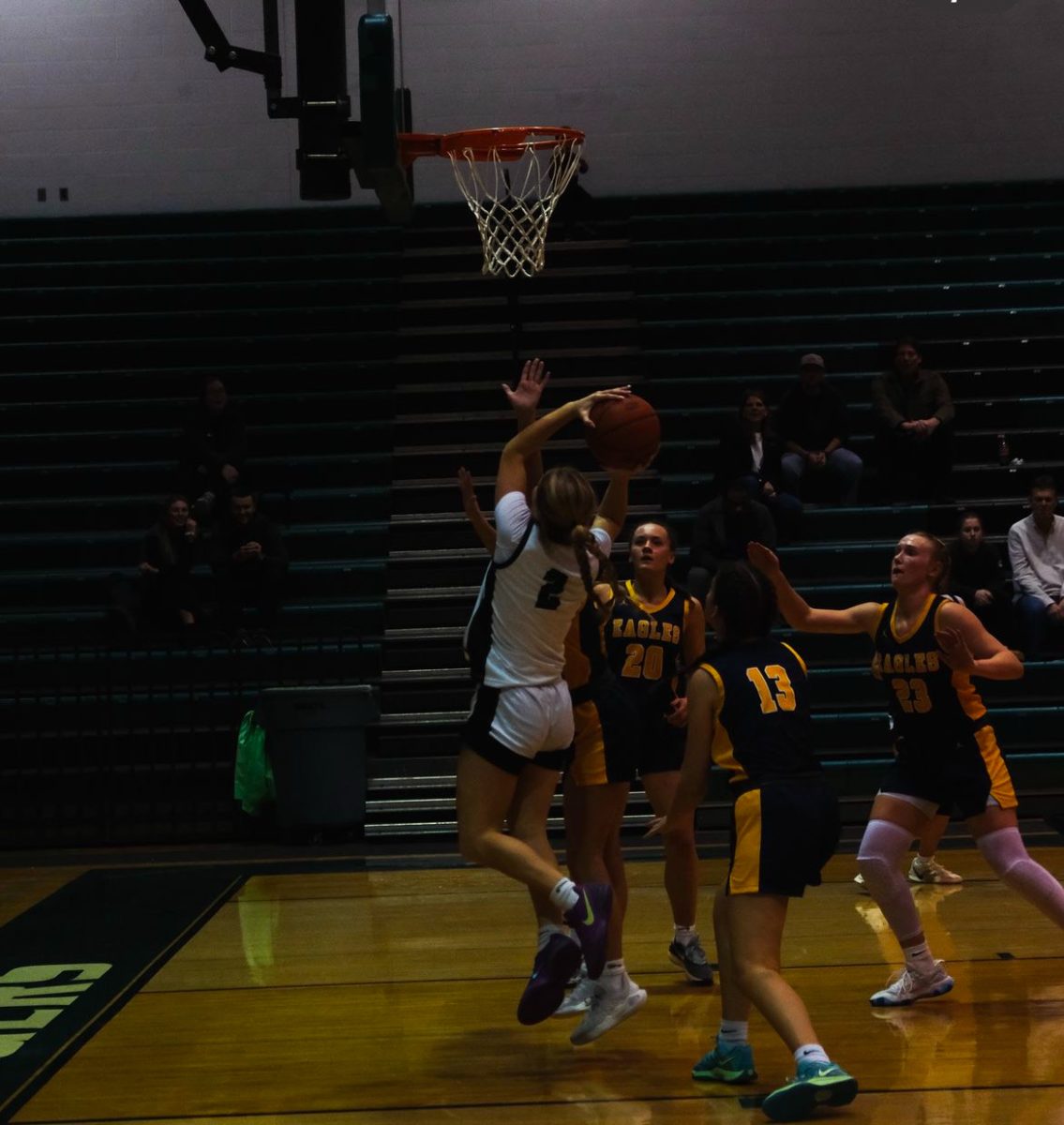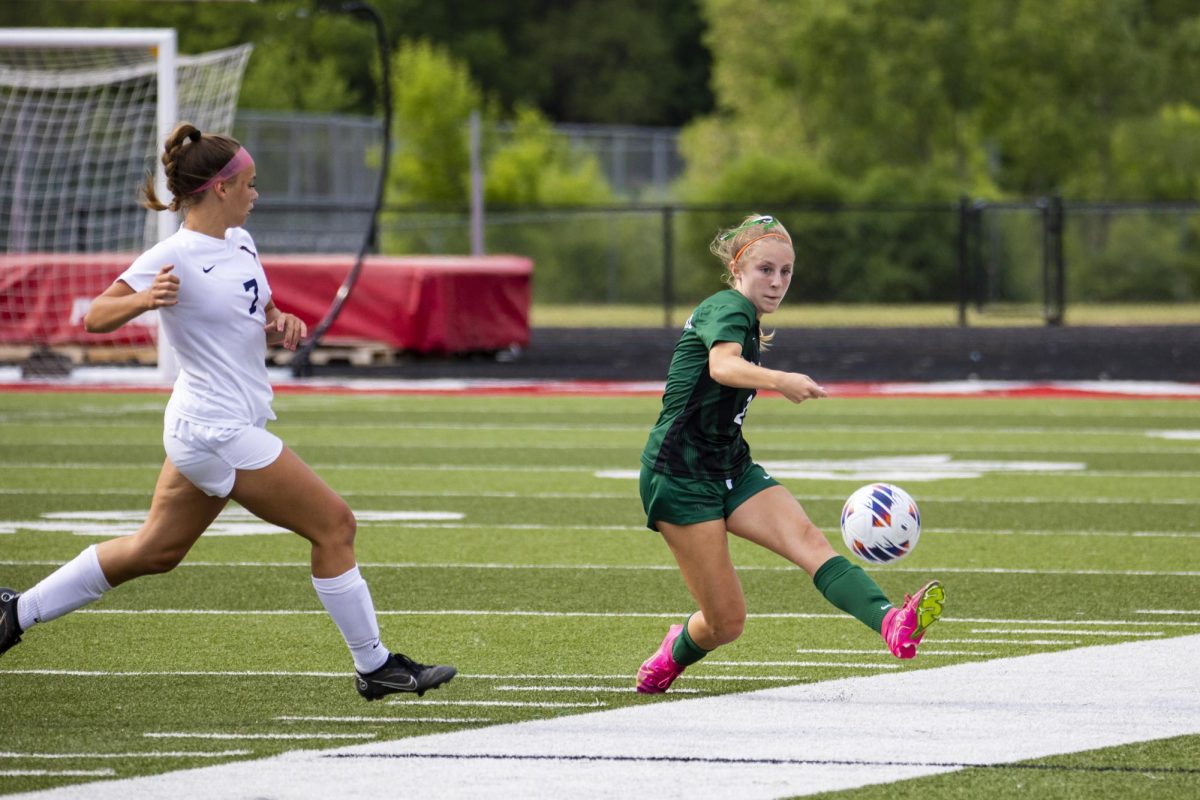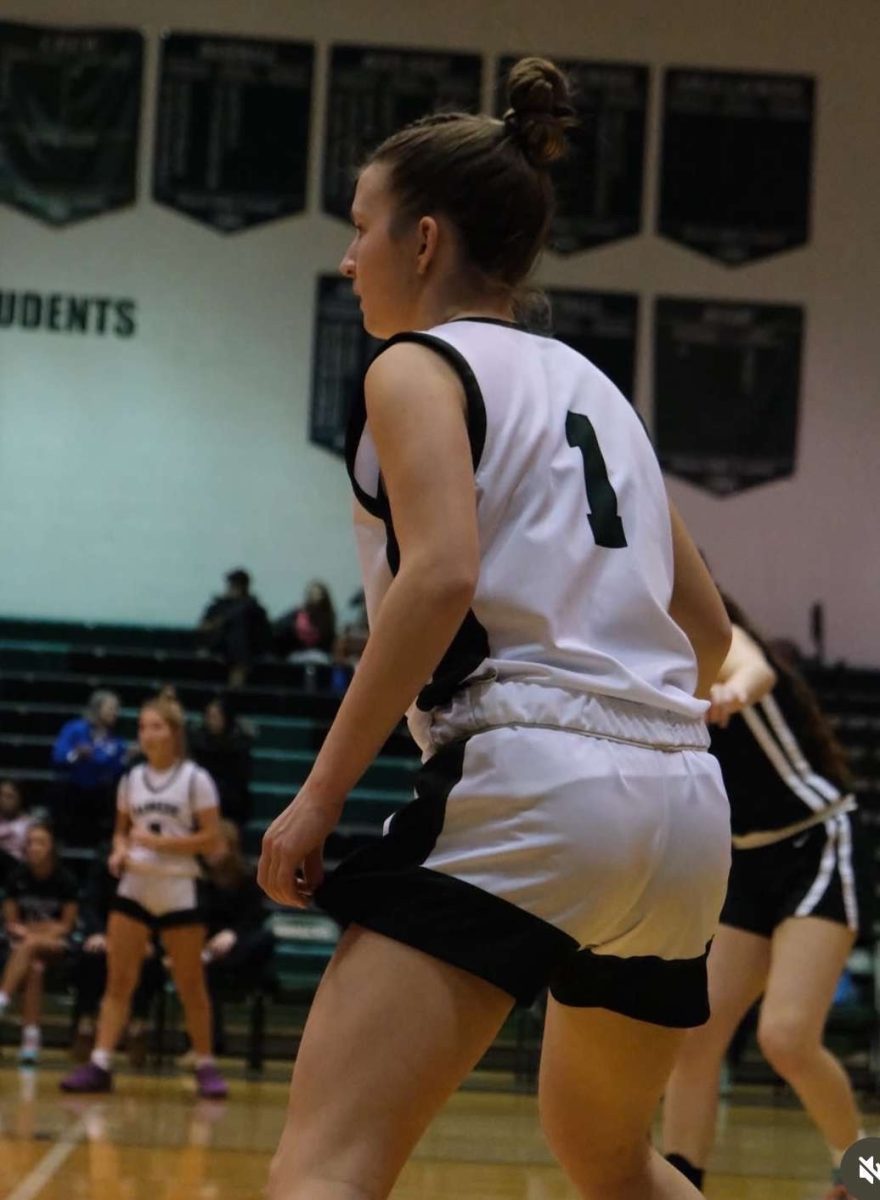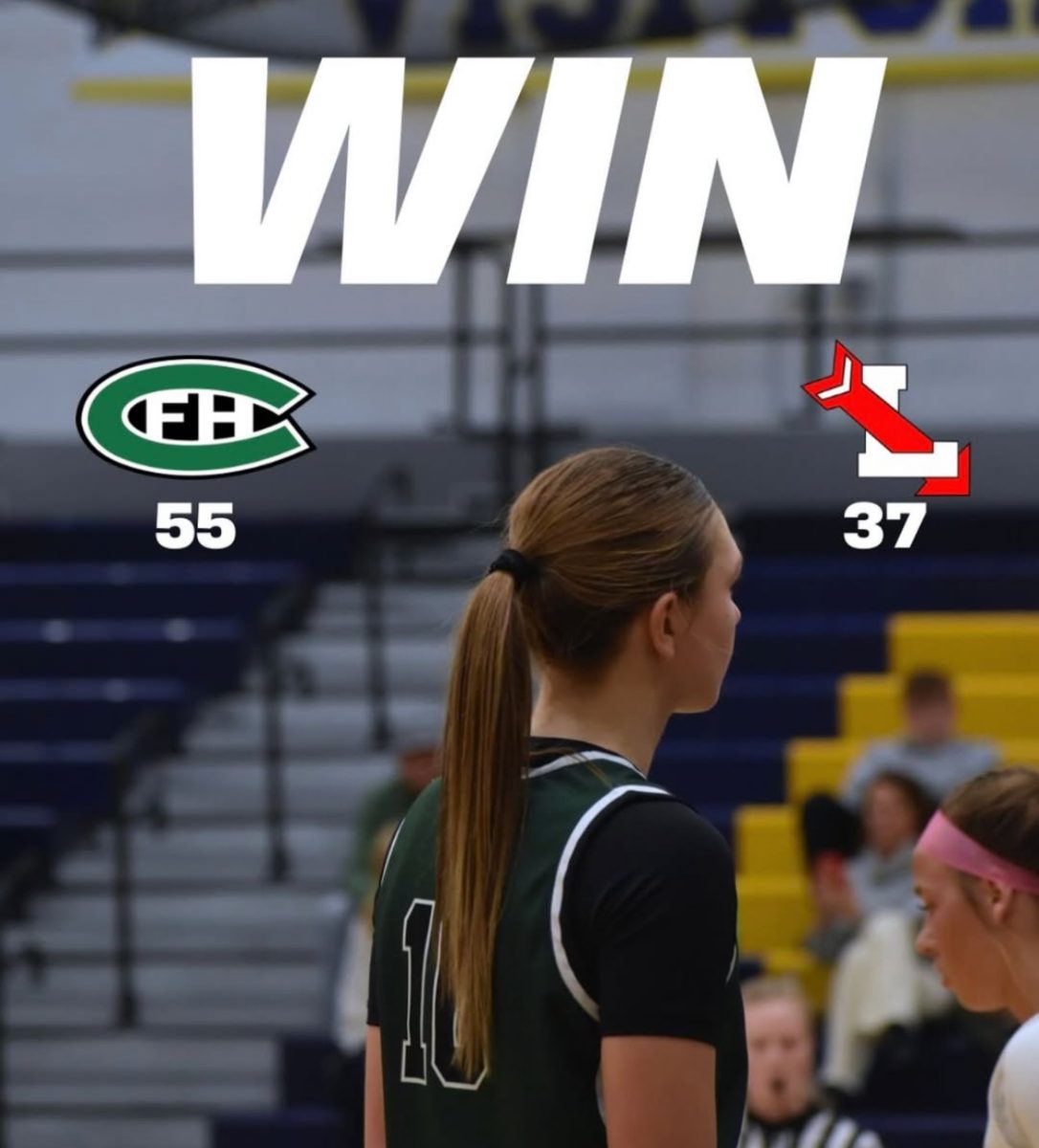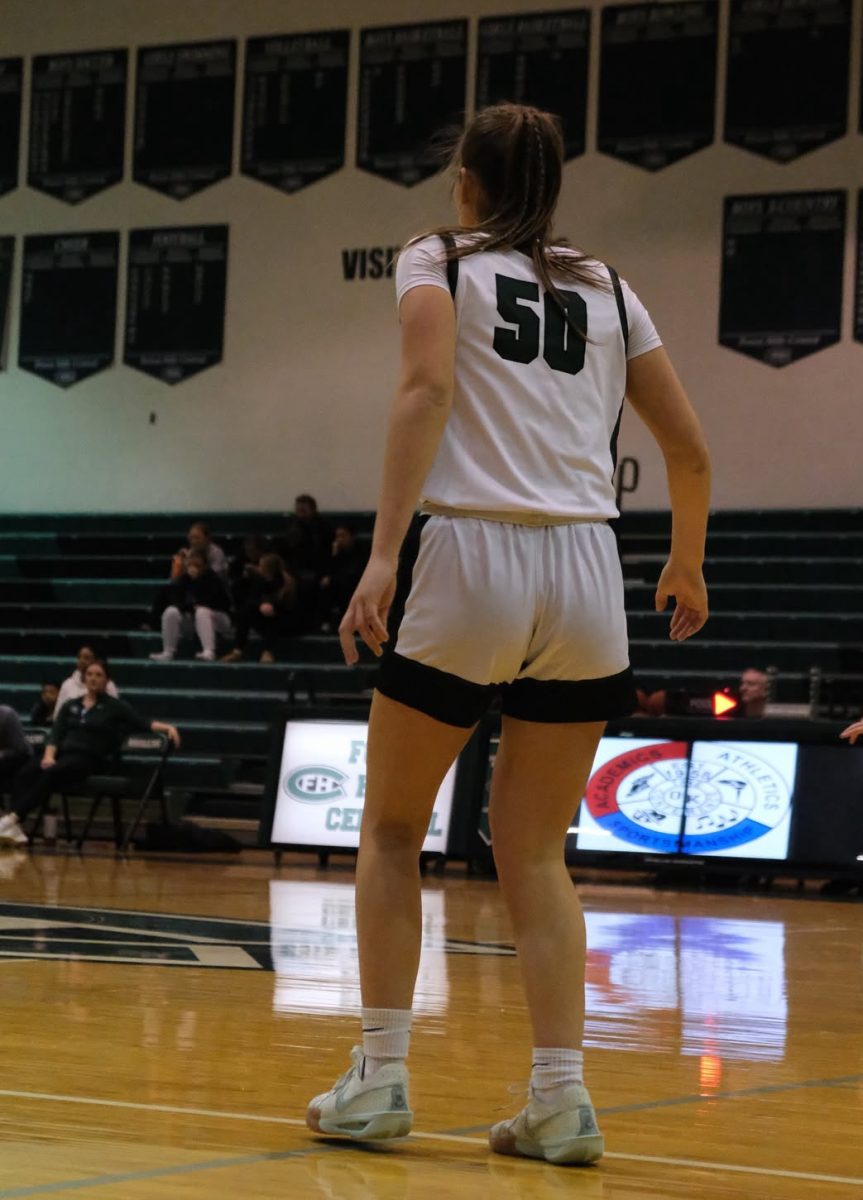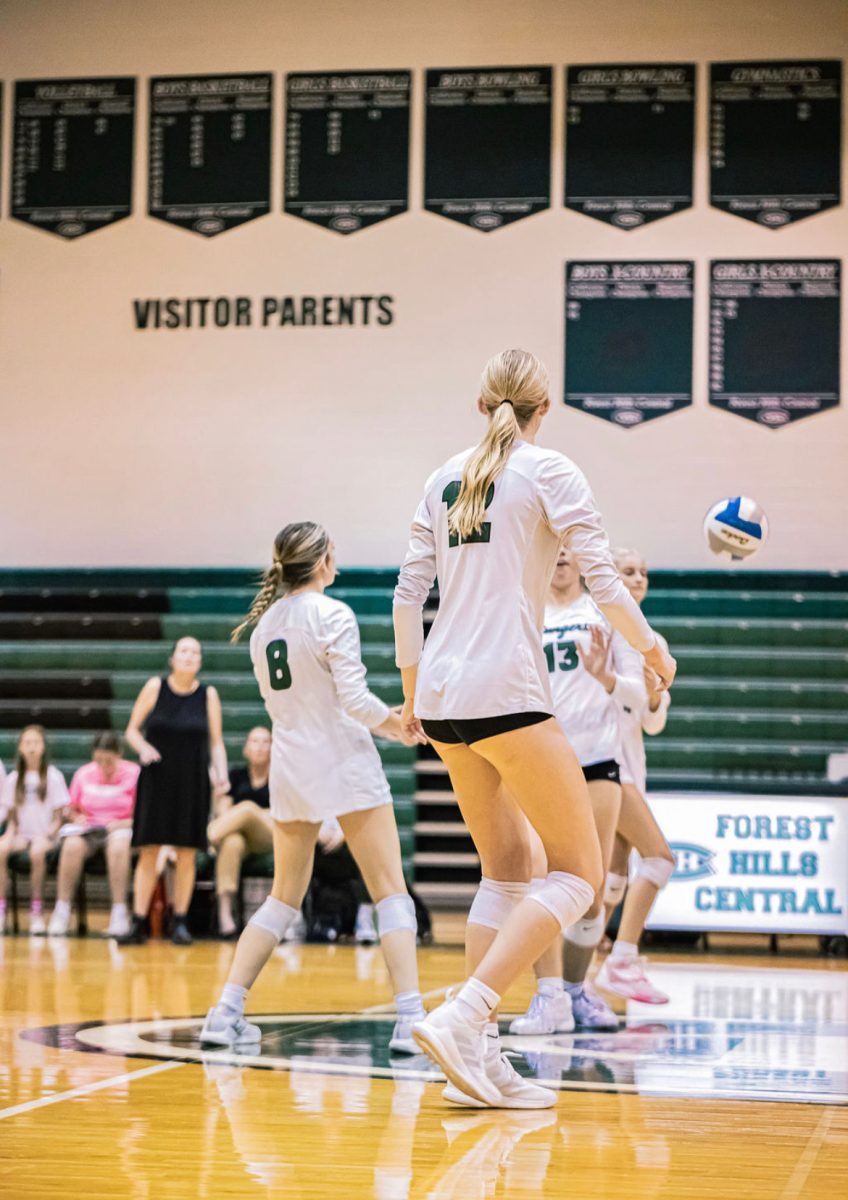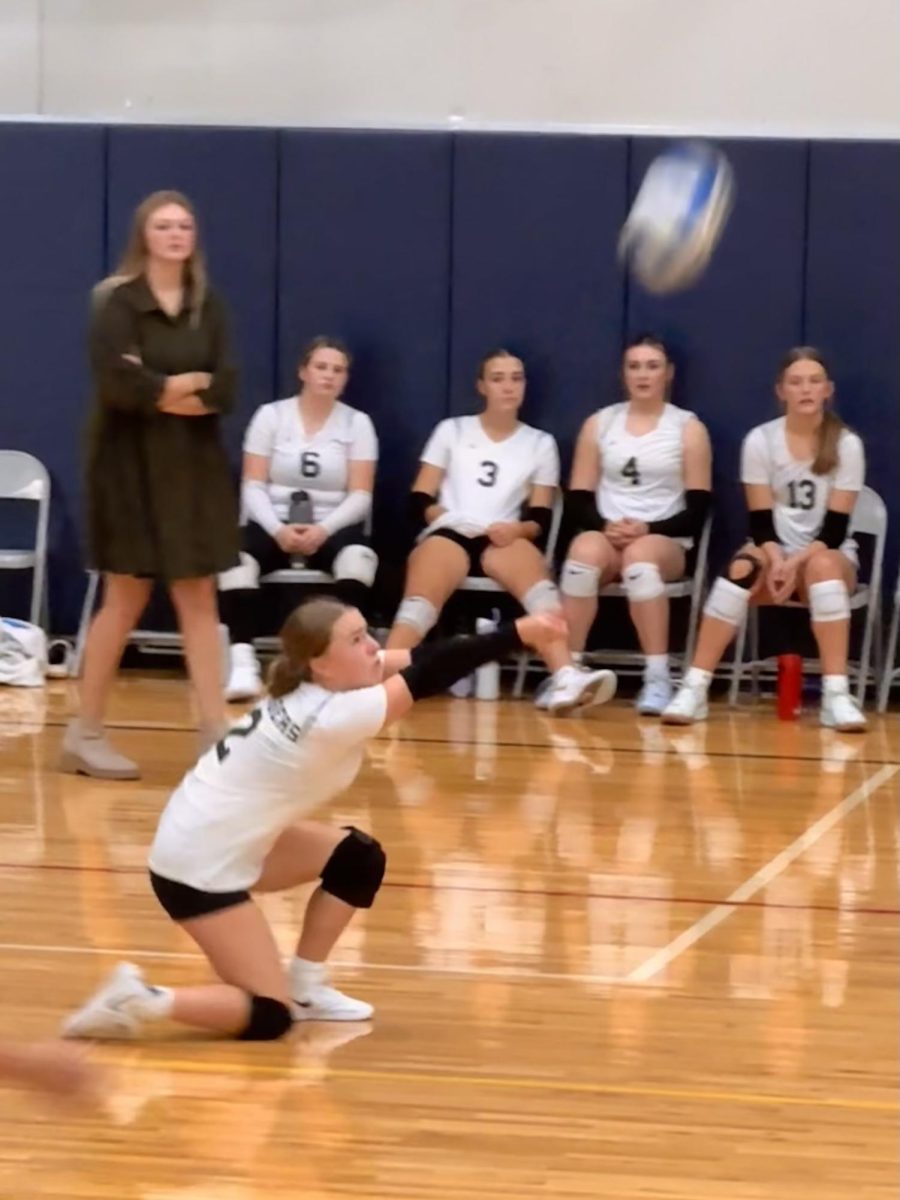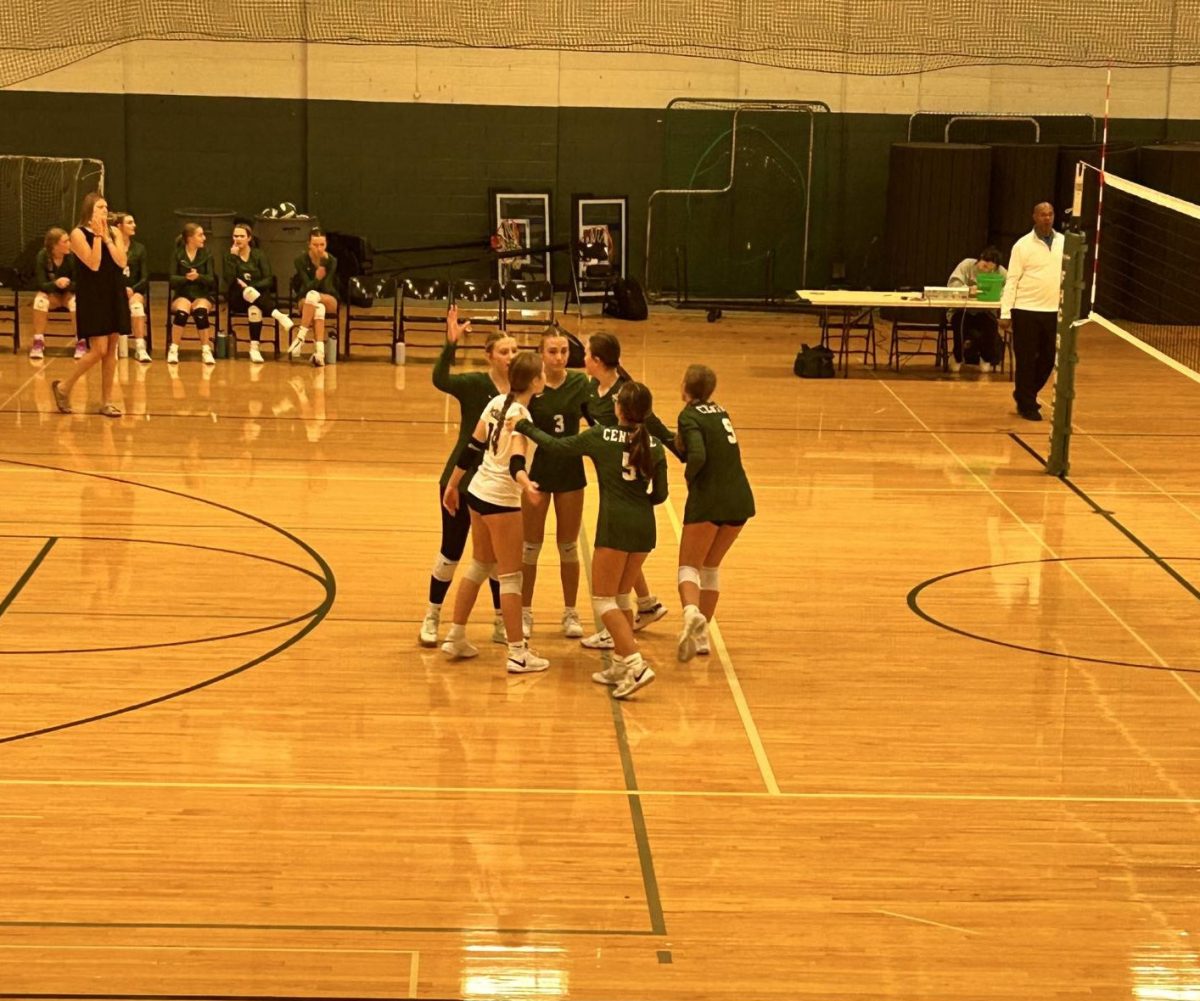A kill by senior outside hitter Avery Weslow at the end of the third set put the Lady Rangers up 19-15 against Byron Center and shifted the momentum. But it didn’t last for long, as they went on to lose the match 3-1.
The Lady Rangers started strong in the first set. After a couple of back-and-forth points, they were able to establish a lead and keep the Bulldogs off their backs. Throughout the first set, there were long rallies as each team fought to win the point. Bodies were thrown at the floor to save the ball and keep it in play.
Senior setter Kadence Roelfzema knows that that’s just part of the game.
“We have the motto ‘we play for our team,’” Roelfzema said. “I’ll do anything to sacrifice my body so that I can get the ball up and so that my team can win the point.”
FHC would go on to win the first set, but the second started slowly. Whatever momentum they seemed to have before was lost. The Lady Rangers were playing at a much slower pace than they previously had, and the momentum of the game had shifted towards the Bulldogs.
Despite the overpowering force of Byron Center, captains Weslow and Roelfzema were able to keep FHC’s energy up. Weslow served the Bulldogs frontcourt with a massive kill when the Rangers were trailing 19-9 to decrease the deficit to nine points.
Her kill ignited a spark in the Lady Rangers, and the momentum began to shift once again back towards FHC.
“Getting a kill is a big point, especially if you get a very good kill, “ Weslow said. “I think it’s very uplifting, and it moves the energy to the next point. If you make an error, the energy goes down, so the more kills, the more energy you have.”
The Lady Rangers would end up losing the second set 25-18, but they found a rhythm in the 3rd set and were starting to heat up once again.
Roelfzema had the opening serve, which would lead to a kill by Weslow, giving the Rangers the first point of the third set. Point by point, they started to pull away from Byron Center. Head coach Natalie Roelfzema had this planned from the start of the game.
“We’re just really trying to focus on the next play or the next point and just really focusing on shaking that off if we lose a point or make an error,” Roelfzema said.
This would become evident as Roelfzema could be seen on the side of the court reassuring her players when costly mistakes were made late, allowing Byron Center to come from behind and win the set in a close 25-23.
Now down 2-1, the Rangers desperately needed to win to force a fifth set to win the entire match.
After winning the third set, the Bulldogs had the opening serve. However, it would go out of bounds, giving FHC the first point. The Rangers hit another scoring drought in the fourth set due to a slow start.
FHC dug themselves into a hole early and looked tired and in need of motivation. The players seemed to raise their spirits in the middle of the set when senior middle hitter Elana Kavanagh came up with a massive block.
“I was motivated by the other five girls on the court, “ Roelfzema said. “They motivate me to keep going even when it gets tiring, and even when you’re in long rallies, it’s definitely important to keep going because you want to get the point for them.”
With the end of the game nearing, FHC was still able to get some important points from major plays. Weslow racked up two more kills on the night, and senior middle hitter Maggie Sneider and senior right-side hitter Mila Kavara came up with a block.
While the team ended up losing the match 3-1, there’s something in the loss that is going to help them get better for their next game.
“It only goes up from here, and if you can focus on the past and what you can do better, then you can improve for the next game,” Weslow said.
It should not go without saying that Byron Center is also one of the top teams in Division I, and the Rangers put up a great fight against them. FHC might have lost the match, but they learned something from it and will use it to propel themselves forward.
“This is the first match in the last two weeks where I felt the team really worked together, and it wasn’t six individuals on the court or the bench,” Roelfzema said. “They all came together and worked as one cohesive team.”





